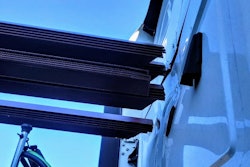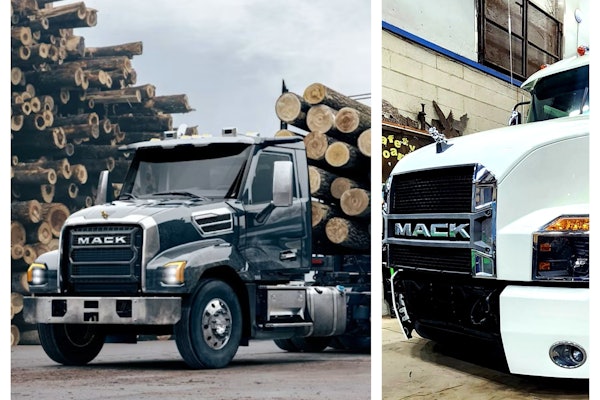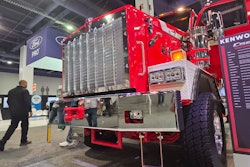Trucking news and briefs for Thursday, Sept. 7, 2023:
Idaho diesel shops fined, owner facing jail time for selling emissions ‘defeat’ devices
Diesel performance parts retailers GDP Tuning and Custom Auto of Rexburg, Idaho, doing business as Gorilla Performance, as well as the companies’ owner Barry Pierce, pleaded guilty in August to charges related to violating the Clean Air Act (CAA) by tampering with emissions control devices.
The companies and Pierce agreed to pay a total of $1 million in criminal fines. The companies also agreed to implement compliance programs and to not manufacture, sell or install any device that “defeats” a vehicle’s emissions controls.
GDP Tuning pleaded guilty to an information charging it with conspiracy to violate the CAA. Gorilla Performance and Pierce pleaded guilty to tampering with the monitoring device of an emissions control system of a diesel truck. Under the plea agreement, the companies and Pierce agree to pay a $1 million criminal fine. The shops could face additional fines of $500,000 or twice the financial gain of the offense, per charge, at sentencing, EPA noted. Pierce also faces up to two years in prison.
“Nearly a decade after EPA began cracking down on illegal defeat devices that violate the Clean Air Act, there is no excuse for companies to be continuing to cheat on vehicle emissions and putting the health of the environment and our communities at risk,” said Assistant Administrator David M. Uhlmann of the EPA’s Office of Enforcement and Compliance Assurance. “EPA will continue to pursue criminal charges against companies like Gorilla Performance, which broke the law brazenly and repeatedly, until this egregious criminal activity comes to a stop once and for all.”

[Related: Diesel shops fined $600K for manufacturing, selling, installing emissions 'defeat devices']
According to court documents, GDP Tuning conspired with Pierce and others to purchase and sell tens of thousands of tuning devices and accompanying software which, when used together, tampered with vehicles’ on-board diagnostic (OBD) systems. OBDs normally detect any removal and malfunction of a vehicle’s emissions control equipment and record a diagnostic trouble code which will illuminate a vehicle’s “check engine light,” EPA said. If the malfunction is not remedied, some vehicles can go into “limp mode,” derating to a maximum speed of 5 mph as an incentive to have the vehicle repaired.
EPA added that GDP Tuning bought and sold devices and software that allowed customers to reprogram or “tune” a vehicle’s OBD. This reprogramming tampers with emissions monitoring built into the diagnostic system and allows removal of the vehicle’s emissions control equipment without detection by the OBD. Removing a vehicle’s emissions controls is typically referred to as a “delete” and is accompanied by a “delete tune.”
In addition to GDP Tuning’s national wholesale operation, Gorilla Performance and Pierce operated a retail shop and auto repair facility in Rexburg, Idaho, where customers’ trucks were deleted and tuned.
Sentencing is scheduled for Nov. 8 before U.S. District Court Judge B. Lynn Winmill for the District of Idaho.
[Related: More companies, individuals charged for allegedly 'deleting' emission control systems]
Rhode Island I-95 closures resume this weekend
On Friday, Sept. 8, the Rhode Island Department of Transportation (RIDOT) will resume its series of consecutive weekend lane closures of I-95 near Route 10/Exit 33 at the Cranston/Providence line for replacement of the Wellington Avenue Bridge. Travelers should expect delays and use alternate routes such as Route 10 and I-295 on these weekends.
Each weekend, lanes will be closed on both sides of the interstate as RIDOT demolishes and replaces different parts of this structurally deficient bridge. The closures start at 7 p.m. on Fridays with all lanes open by 5 a.m. Monday morning. RIDOT will keep at least two lanes open on the side of the bridge being worked on each weekend.
For brief periods of time, for Friday, Sept. 8 and the week of Sept. 11, there will be a lane split on I-95 North with two lanes on either side of the work zone. Drivers should not stop or suddenly change lanes at the split. This unsafe behavior will cause traffic delays and could lead to a crash. All lanes go through.
The remaining schedule for the bridge replacement and traffic impacts is as follows:
- Sept. 8: There will be a lane split on I-95 North near Route 10 in Cranston, with two lanes on either side of the split. All lanes go through.
- Sept. 8-11: The two left lanes on I-95 North and the left lane on I-95 South will be closed beginning at 7 p.m. Friday night, Sept. 8. All lanes reopen by 5 a.m. Monday, Sept. 11. Additionally, the ramp from Route 10 North to I-95 North will be closed.
- Sept. 11-15: There will be a lane split on I-95 North near Route 10 in Cranston, with two lanes on either side of the split. All lanes go through.
- Sept. 15-18: The two right lanes on I-95 North and the left lane on I-95 South will be closed beginning at 7 p.m. Friday night, Sept. 15. Additionally, the ramps from Route 10 North to I-95 North and South will be closed. All lanes reopen by 5 a.m. Monday, Sept. 18. There will be no lane split, northbound or southbound.
[Related: More truck parking coming to I-80]
Cummins, Paccar, Daimler partner on EV development
Cummins' Accelera zero-emissions business unit is partnering with Daimler Trucks & Buses U.S. Holding and Paccar to accelerate and bring battery cell production and the battery supply chain to the U.S., the companies announced Wednesday.
Total investment is expected to be upwards of $3 billion for a 21-gigawatt hour (GWh) factory. A Cummins spokesperson said a site has not yet been selected, but the group hopes to have that done by early next year with production starting in 2027.
Jamie Fox, principal analyst at Interact Analysis, noted that 21 GWh "is a very big number in the context of trucks and buses. A 21 GWh plant operating at full capacity in 2026 would provide enough batteries for the entire North American market for all battery-electric buses and medium- and heavy-duty trucks combined, assuming about 10% of trucks are electric in that year.”
Fox also projected that by 2028, a plant that size “would amount to around a 40% share of all electric buses and medium and heavy trucks -- assuming 22% of trucks are electric in that year. However, the share would be much lower if light-duty trucks are included in the target markets, or the plant also targets international markets beyond North America."
Accelera by Cummins, Daimler Truck and Paccar will each own 30% of, and jointly control, the joint venture, which will initially focus on the lithium-iron-phosphate (LFP) battery technology family for commercial battery-electric trucks. EVE Energy, a global leader in the manufacture of LFP battery cells for the vehicle industry, will serve as the technology partner in the joint venture with 10% ownership and will contribute its battery cell design and manufacturing know-how.
The group expects LFP battery cells produced by the joint venture to offer several advantages compared to other battery chemistries, including lower cost, longer life, and enhanced safety, without the need for nickel and cobalt raw materials. --Jason Cannon
[Related: Starting with smaller ZEVs could prove to be 'a good plan']









